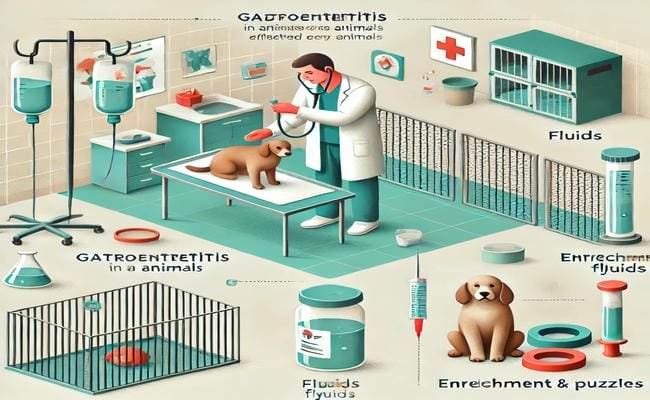
How To Create Virtual Id Card That Has Reflector Sticker
January 20, 2025
How To Cut Hoiles In Plexiglass For Sxs Straps
January 21, 2025Gastroenteritis in animals suffering from zoochosis is a serious condition that requires prompt and effective care. This guide provides a comprehensive approach to identifying and curing gastroenteritis in animals affected by this behavioral syndrome.
Why Address Gastroenteritis in Zoochosis?
- Prevent Complications: Untreated gastroenteritis can lead to severe dehydration and nutritional deficiencies.
- Improve Animal Well-being: Reducing physical discomfort supports overall recovery from zoochosis.
- Enhance Quality of Care: Proper treatment helps ensure the ethical and effective management of captive animals.
Steps to Cure Gastroenteritis in Zoochosis
- Identify Symptoms:
- Look for signs such as diarrhea, vomiting, loss of appetite, and lethargy.
- Monitor the animal’s behavior and stool consistency for abnormalities.
- Isolate the Affected Animal:
- Separate the animal from others to prevent the spread of infection.
- Ensure the isolation area is clean, quiet, and stress-free.
- Hydrate Immediately:
- Provide oral rehydration solutions or electrolyte-rich fluids to combat dehydration.
- Use intravenous (IV) fluids if the animal is severely dehydrated or unable to drink.
- Administer Medications:
- Consult a veterinarian to prescribe anti-diarrheal, anti-inflammatory, or antibiotic medications.
- Follow the prescribed dosage and administration schedule precisely.
- Modify Diet:
- Switch to a bland and easily digestible diet, such as boiled rice or plain protein sources.
- Avoid foods that could irritate the digestive system further.
- Provide Enrichment:
- Incorporate mental and physical stimulation to reduce stress, a contributing factor to zoochosis.
- Use enrichment tools like toys, puzzles, or naturalistic environments.
- Monitor Recovery:
- Track the animal’s hydration levels, stool consistency, and energy levels daily.
- Report any persistent symptoms or new issues to the veterinarian immediately.
Tips for Effective Management
- Maintain Cleanliness: Regularly clean enclosures and feeding areas to minimize the risk of reinfection.
- Minimize Stress: Ensure the animal has minimal exposure to stressors like loud noises or overcrowding.
- Work with Specialists: Engage veterinarians and animal behaviorists to address both physical and psychological needs.
Troubleshooting Common Issues
- Persistent Symptoms:
- Reassess the treatment plan with the veterinarian.
- Conduct additional diagnostic tests to rule out underlying conditions.
- Difficulty Administering Medication:
- Use palatable formulations or mix medications with the animal’s food.
- Seek professional assistance for safe administration.
- Dehydration Not Resolving:
- Increase the frequency of fluid administration or switch to IV fluids if necessary.
Also Read: How To Create Virtual Id Card That Has Reflector Sticker
Conclusion
Curing gastroenteritis in animals suffering from zoochosis requires a combination of medical treatment, dietary adjustments, and stress reduction. By following these steps, caregivers can ensure a holistic approach to recovery and improved quality of life for the affected animal.



